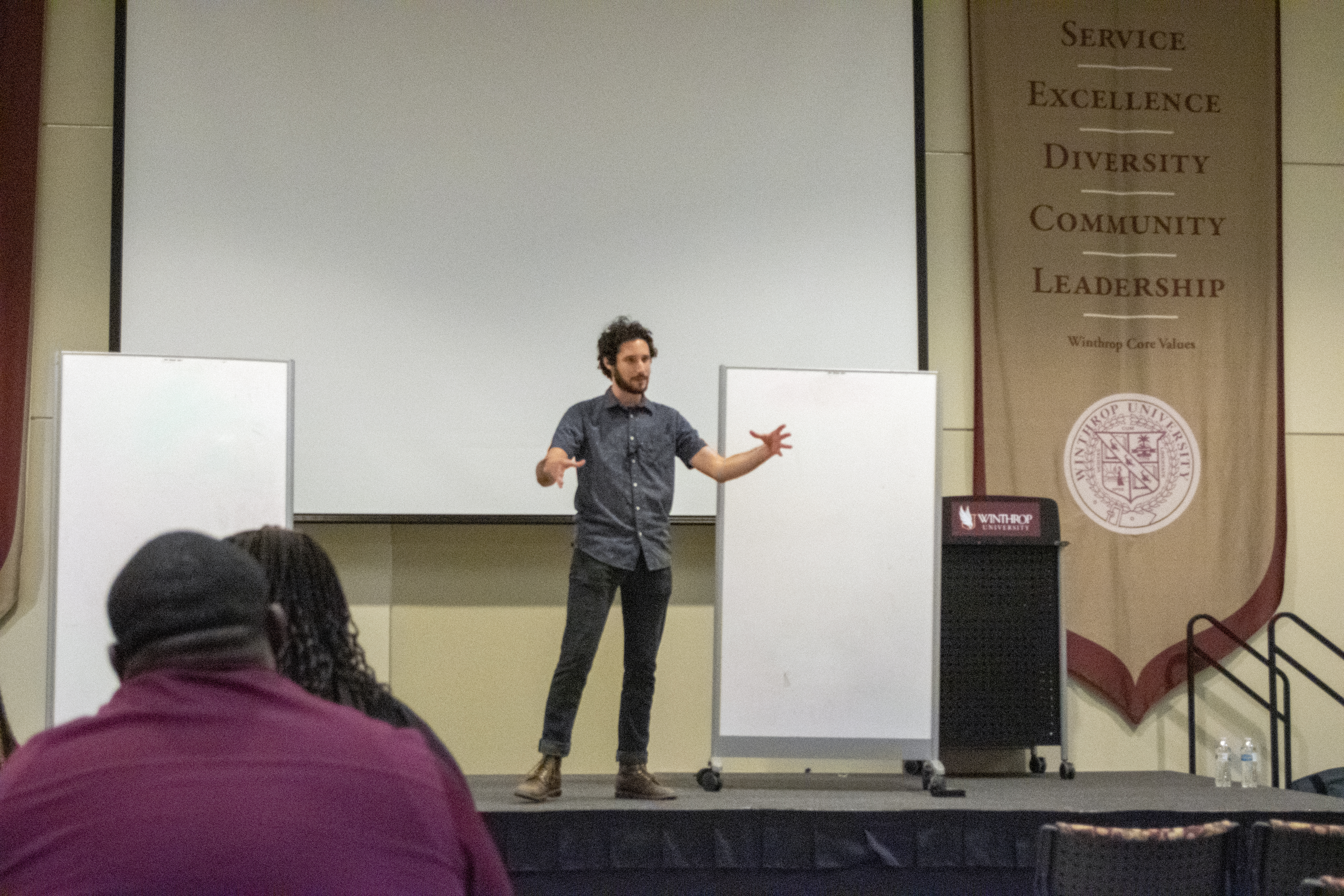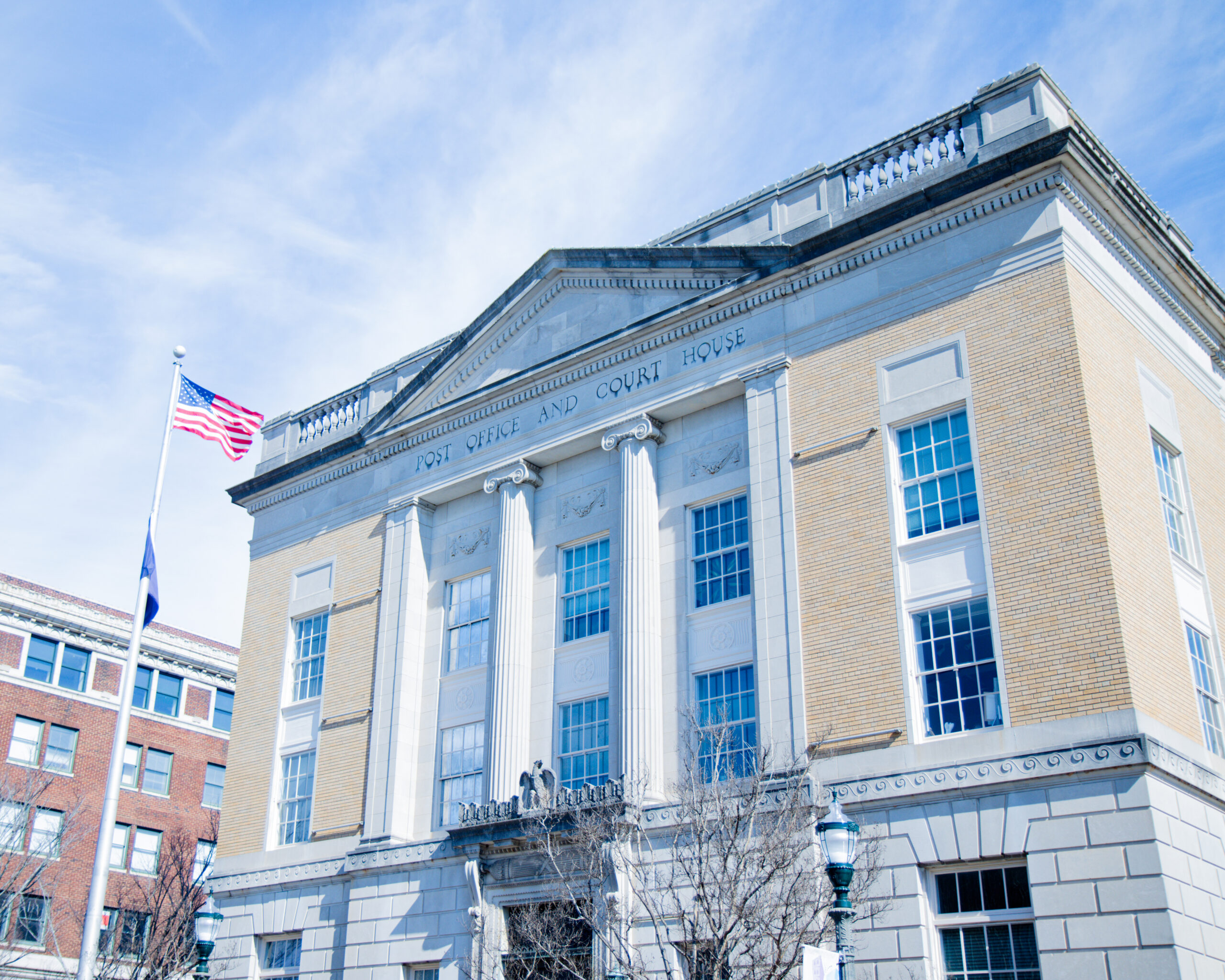In today’s world, college is a new opportunity to make friends and expand horizons. However, there is danger of individuals who can manipulate or objectify students and put pressure or manipulate the story to leave the victim powerless. Fortunately, everyone can do their part to hold those individuals accountable.
The Winthrop DiGiorgio Student Union hosted “Hook-Up” on Oct. 22 in Richardson Ballroom that looked at the meaning of hook-ups and how it relates to sexual assault and college life. The event featured nationally touring speaker David Seeber as he discussed common elements of and myths about sexual assault in college and how students can help to prevent it from happening in the future. Additionally, Seeber explored what constitutes as a good relationship, a forceful one and those in between.
“The goal of this presentation is to see what a hook up is, what people should expect to bring, consent and certain types of language that people who coerce or force sex use,” Seeber said.
DiGiorgio Student Center member and event chair Tommy Davis explained that one of the reasons that Seeber was invited due the interactivity of his presentations which students would identify and learn more from it.
“David Seeber, our guest speaker, does just that through his interactive presentation of establishing a definition of what consent looks like and he offers both a male and female perspective. This way, the audience could get both perspectives and how it affects both genders, rather than looking at it from one point of view,” Davis said.
One of the interactive portions of the lecture included using whiteboards to write words associated with men and women in the matter of sex. The result was that words associated with men who had sex were more positive compared to women, who are associated negatively for having sex.
“That double standard is unfair. Women should make the same decision as men do when it comes to sex,” Seeber said.
Another objective of this panel help explained more the definition of hook ups and dispelling myths of victims being powerless and not being people or that all men are rapists. This allows students to have a better understanding of supporting victims of sexual assault.
“I think it is important because it is [a] common thing that students do while they are at college and it is imperative that they understand what all is involved before making that commitment,” Davis said.
The panel explored the peer pressure of college students, especially men, to have sex and the idea of words that can objectify women through language. Using language that seems racist or sexist without being stopped can lead to perpetrators make women feel like object instead of a human being.
“If we are just letting this language to be common place, we all allow the perpetrators to continue, which affects our campus,” Seeber said.
Winthrop students were able to interact with the speaker, talking about what classifies as a hook up and rape in order to better to identify these types of behaviors. One way that students can improve life on campus is to remain vigilant when out with friends so they can lessen the likelihood of sexual assault.
“I think this topic is relevant because as college students, the majority of us are away from home, never lived in any other part of the world for the exception of where we are from, or just have never lived alone before. Therefore, we might not possess all of the knowledge needed to protect ourselves from cases that might cause us harm,” Davis said.
As students engage in college life and start relationships with new people, it’s important that relationships are safe and consensual. That way it is easier to spot people who have ill intentions and protect fellow students, Seeber said.
“If we make verbal consent normal it makes people who don’t ask for consent feel more exposed and it’s harder for them to get away with it and make excuses,” Seeber said.
Photo: Sam Ross/ The Johnsonian




